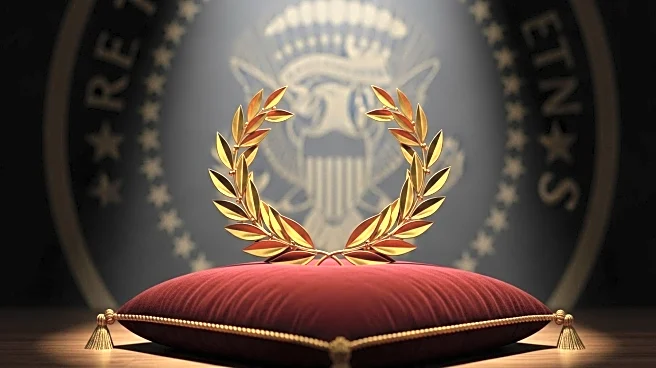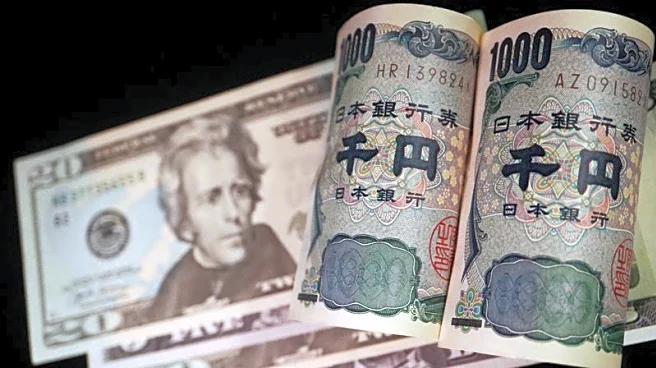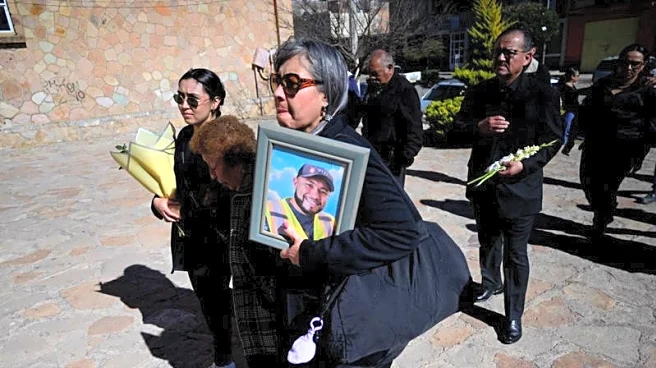What's Happening?
Issa Tchiroma Bakary, an opposition candidate in Cameroon, has declared victory in the October 12 presidential election, urging incumbent President Paul Biya to concede. Tchiroma's claim comes ahead of the official results, which are expected by October 26. He has promised to provide a detailed report of the votes by region. The election was overseen by Elections Cameroon, but no official results have been released yet. Minister of Territorial Administration Paul Atanga Nji has rejected Tchiroma's claim, accusing him of attempting to disrupt the electoral process. The election featured eleven opposition candidates, with Biya predicted to win due to a divided opposition and the barring of his strongest rival.
Why It's Important?
The claim by Tchiroma highlights the political tensions in Cameroon, where President Biya has been in power since 1982. The election is crucial for the country's future, as it faces challenges from a secessionist movement and corruption. Tchiroma's declaration could lead to unrest if not handled carefully, impacting the stability of the nation. The situation underscores the need for transparent electoral processes and the importance of democratic governance in maintaining peace and development. The international community may closely monitor the situation, given Cameroon's strategic importance in Central Africa.
What's Next?
Official election results are expected by October 26, which will determine the next steps in Cameroon's political landscape. If Biya is declared the winner, the opposition may challenge the results, potentially leading to protests and political instability. The government will need to address any allegations of electoral fraud to maintain credibility. International observers and organizations may call for dialogue and reconciliation to prevent conflict. The outcome of the election will influence Cameroon's domestic policies and its relations with neighboring countries and international partners.
Beyond the Headlines
The election in Cameroon reflects broader issues of governance and democracy in Africa, where long-standing leaders often face challenges from opposition movements. The situation may prompt discussions on electoral reforms and the role of international bodies in ensuring fair elections. The political dynamics in Cameroon could influence regional stability, as other countries observe the handling of electoral disputes and governance challenges.











